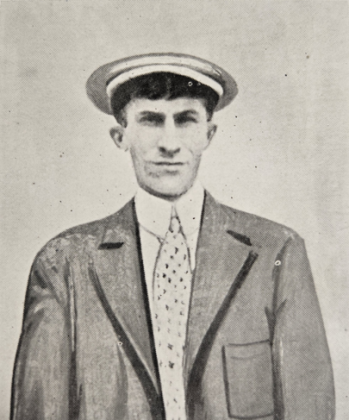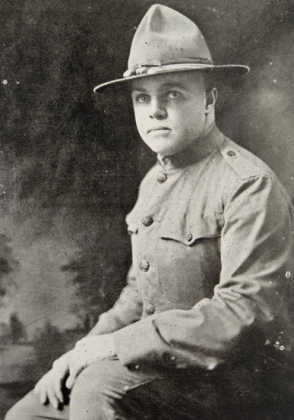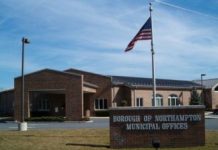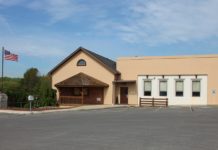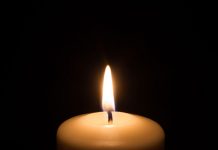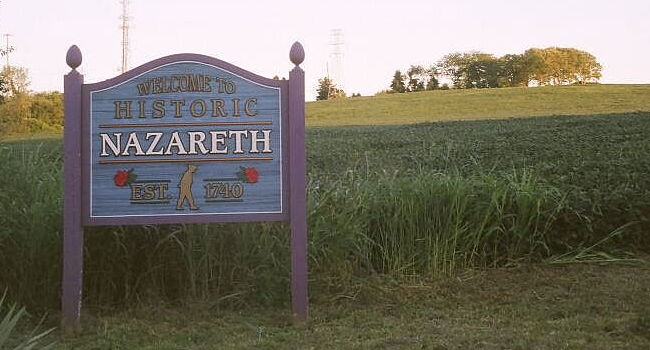A few months ago, we were invited to the Fred A. Snyder American Legion Post 353 in Northampton. The Legion graciously allowed us to look through their inventory of artifacts for any historical information we could use in our research.
The American Legion was organized after “The Great War,” World War I. The war ended in November 1918. Large numbers of men and a few women served in the military during the war. After the war, the community of Northampton decided to welcome the veterans home with a program planned for Oct. 15 and 16. The year was 1919.
The program started with a Memorial Day address in the Northampton High School auditorium. The speaker was Chaplain John Zelie. In his address, Zelie spoke of the bravery and courage of the soldiers on the battlefield. The program consisted of many other activities. One feature was several boxing bouts which took place on what is today the NAA athletic complex. One bout spotlighted “Johnny the Siegfried Bearcat Herman.” The borough also staged the largest parade in Northampton up to that time. There was also a dinner for veterans, a memorial service for veterans who lost their lives during the war, giant fireworks and a Northampton versus Catasauqua baseball game.
Our Legion is named after Fred A. Snyder, who was born in Triechlers on May 22, 1888. He was a resident of Northampton for a period of 16 years. Snyder was a member of Company C, 30th Infantry, 79th Division, and was killed in action in the Meuse-Argonne Offensive, on or before Oct. 16, 1918, according to the book “Welcome Home” by Rev. John Baer Stoudt. Snyder was buried in France.
Corporal Ross G. Kiechel was a member of the American Expeditionary Forces, Cement Mills Co. No. 1. Sadly, he died of meningitis before returning home in March 1919. His home was at 1630 Washington Ave. A street named Kiechel Court is named in his honor in Northampton.
Other soldiers who gave their lives during the war included: Lieutenant Elwood Floyd Kresge, a pilot in the Air Service who perished in an air crash in Koblenz, Germany; John Beck, of the 139th Infantry, 79th Division, was killed in action in the Meuse-Argonne Offensive in France; Sergeant Franklin A. Schall, of Company B, 310th Machine Gun Battalion, 79th Division, died of injuries received in battle in 1919; Edward Smith, of the 79th Division, died of influenza and is buried at the Allen Union Cemetery in Northampton; Oliver Moser, of the 72nd Division, died of pneumonia in France; Nicholas Tarus was killed in a railroad accident in France; and William Yoch died in a hospital at Fort Meade.
These brave young men left their homes to fight in World War I. They were lost serving the country they loved.
In our next column, we will be at our first American Legion Post in Northampton.

